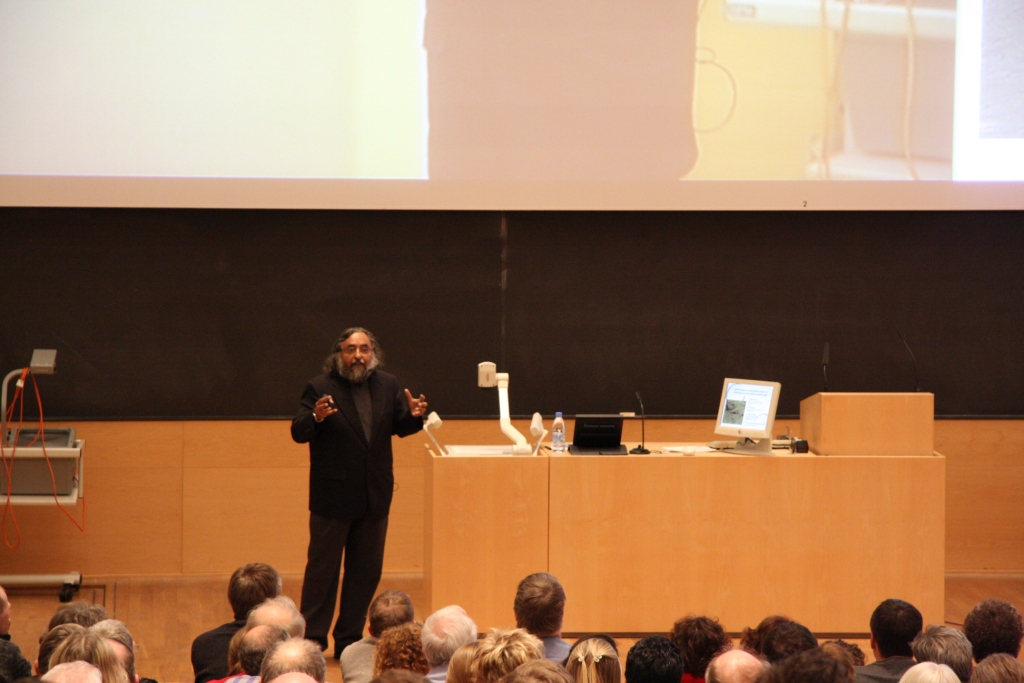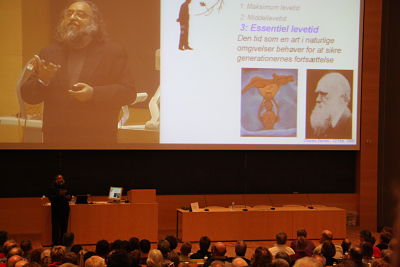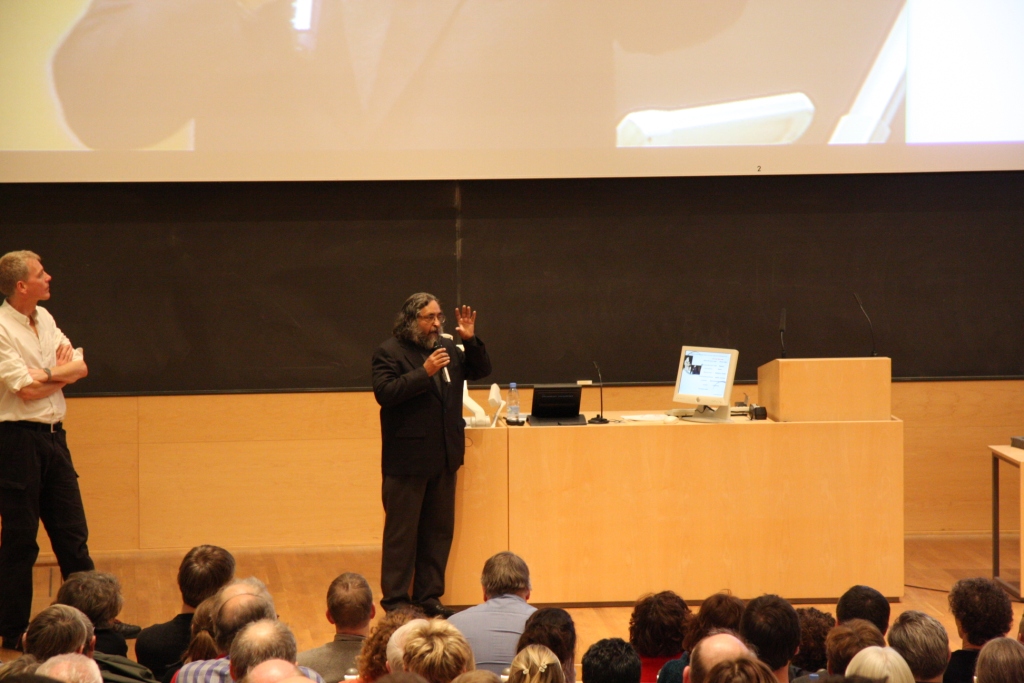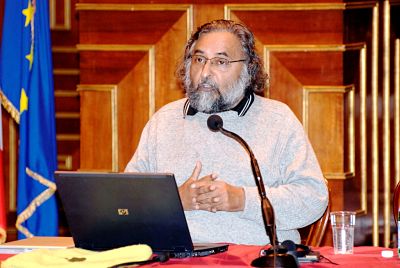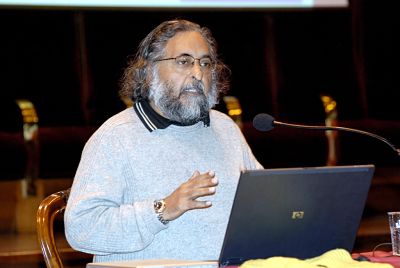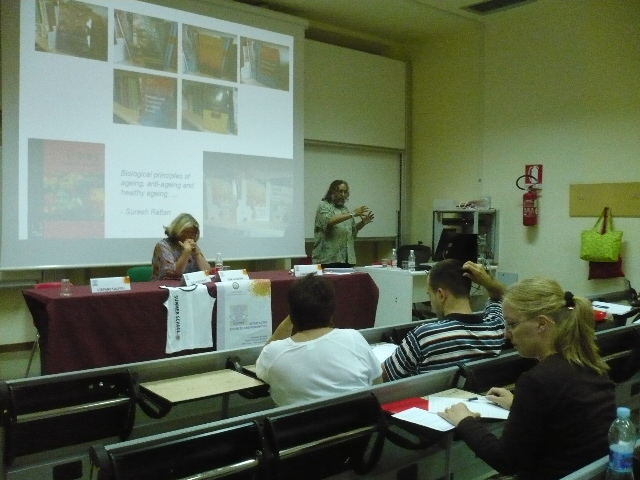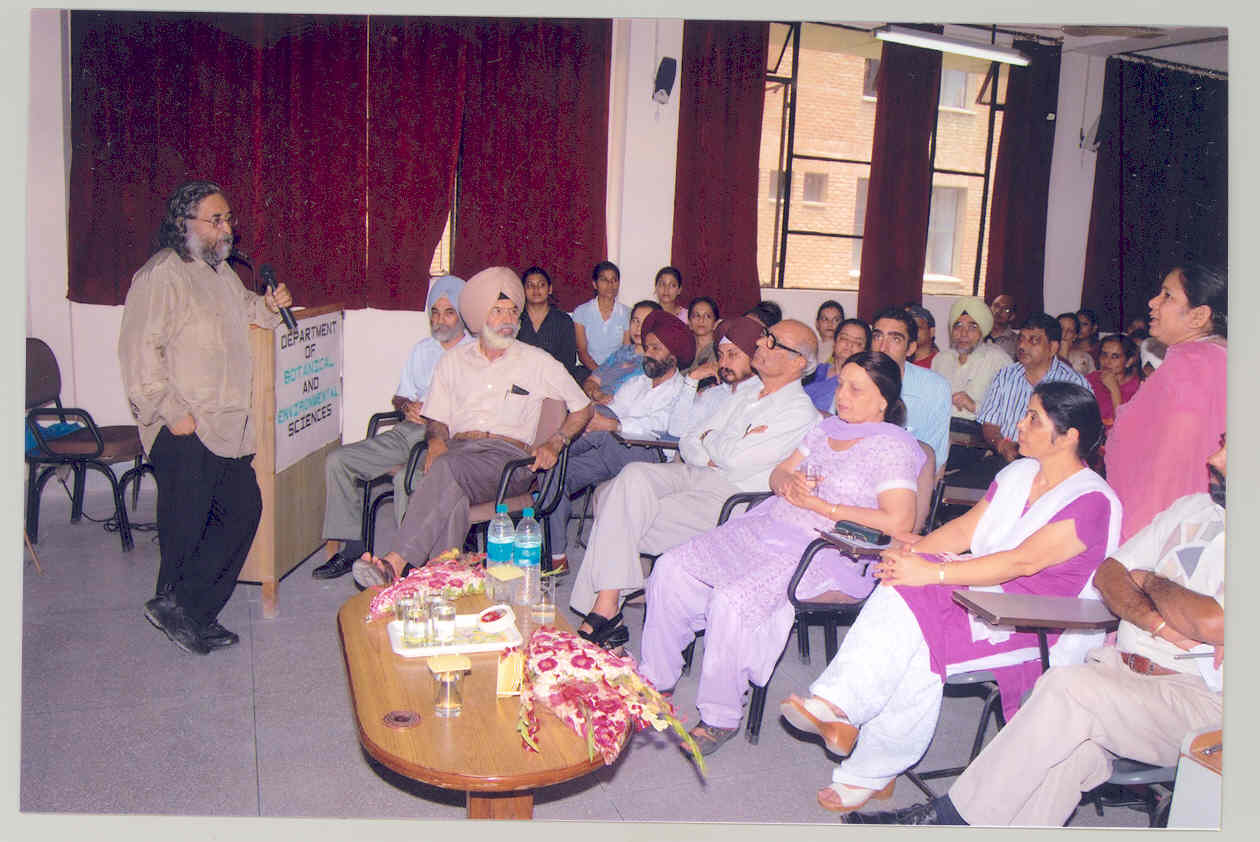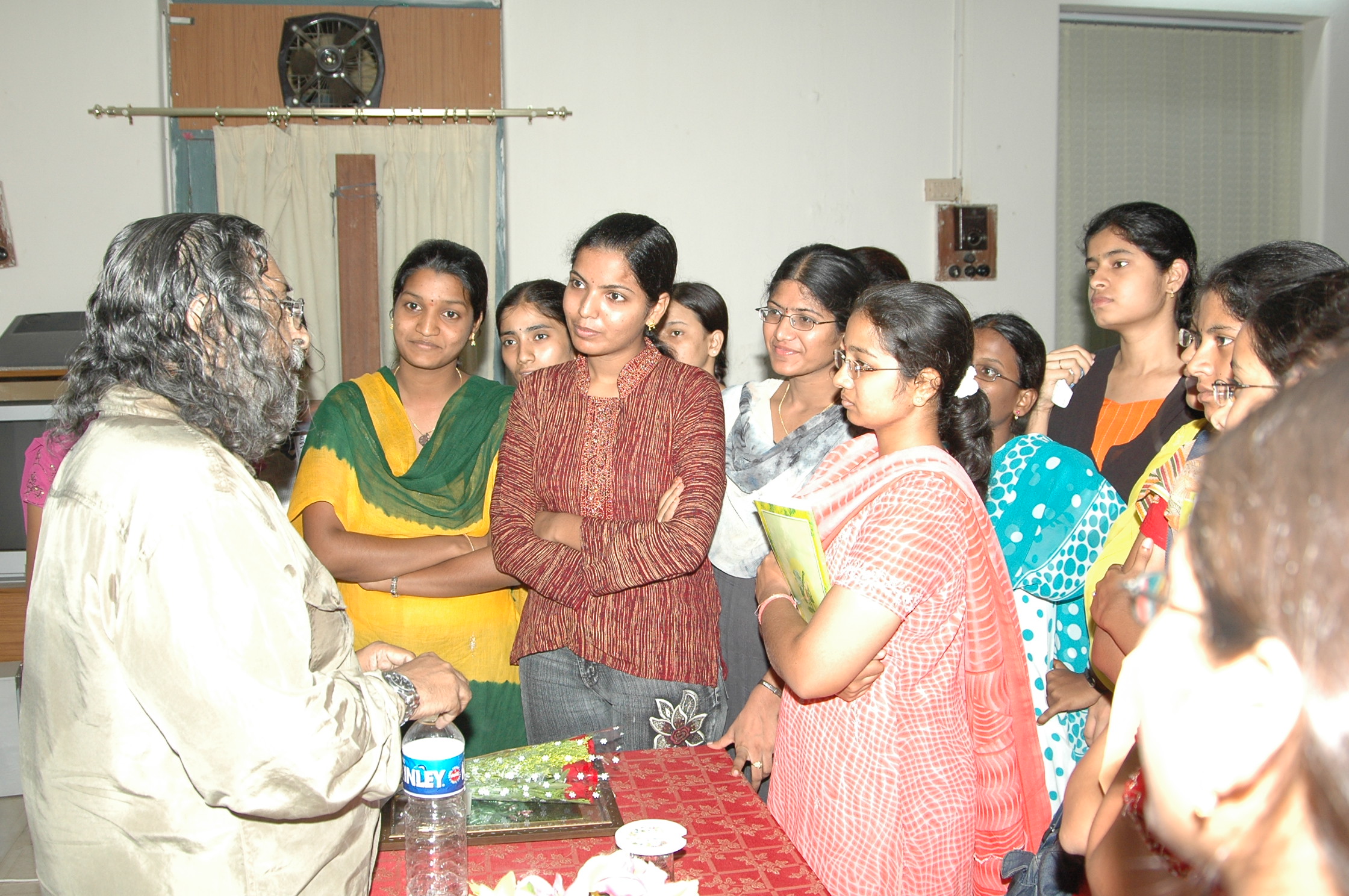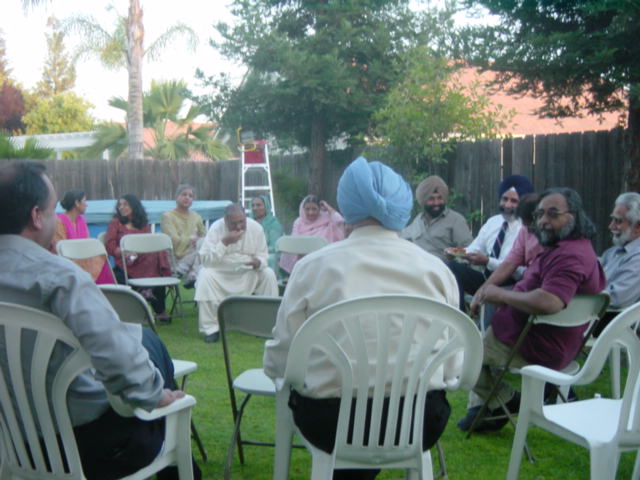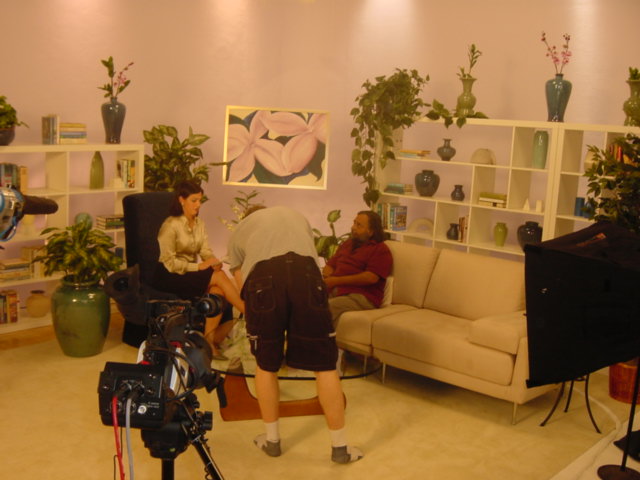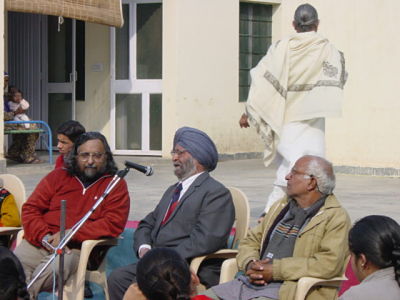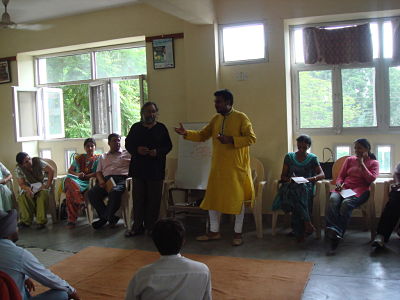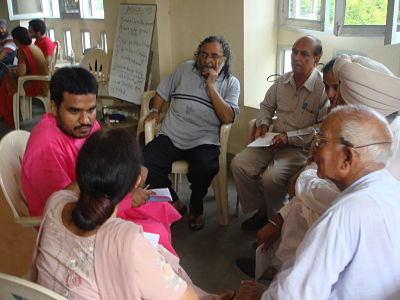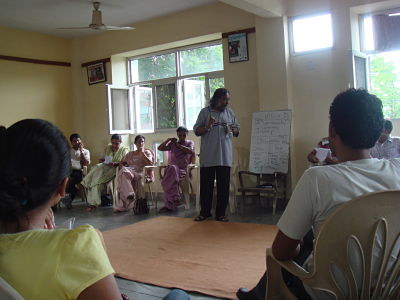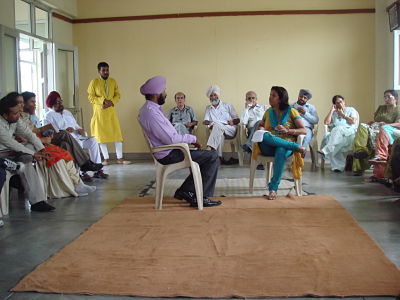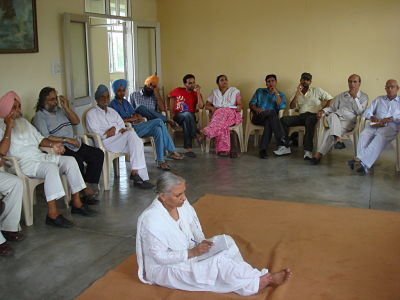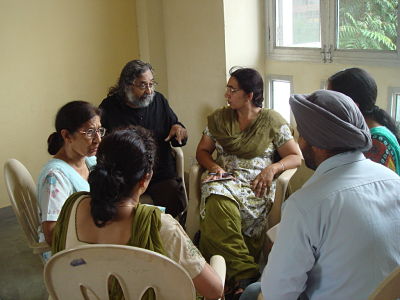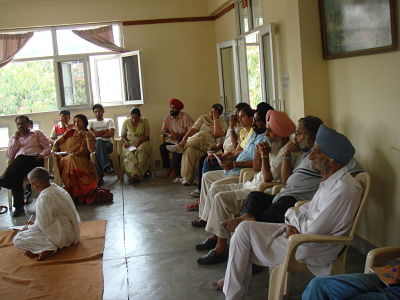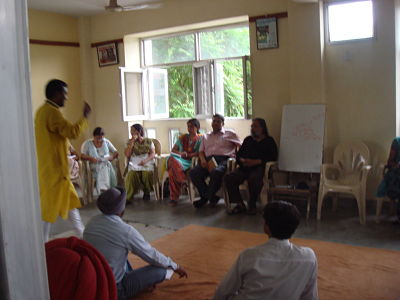I offer to give exciting, educating and infortaining (information + entertaining) audio-visual lectures on the body, mind and society aspects of ageing research and intervention.
My lectures are uniquely inspiring, educating and practical about health, healthy ageing, contented life and much more with information, knowledge and wisdom.
I have more than 30 years of experience in successful, exciting and inspiring communication of science and scientific values to an audience comprised of any age-group and of any educational, cultural and social background.
I can communicate with world level scientists, intellectuals, philosophers, business leaders, healthcare and beauty personnel, journalists, researchers, students, general public and, most importantly, the next generation – children.
(to see a list of my past and forthcoming lectures list click here to open a new window
Some ideas for topics for lectures and workshops:
- AGE AND AGEING – for “lay public” in communities, in social organisations, in old people’s homes, in company get-togethers etc. Lecture duration: single lecture of about 45 minutes or a double lecture of 2×45 minutes, followed by open discussion.
- THE SCIENCE OF AGEING – introducing school- and college-students to this important issue of emotional, social and scientific significance. Lecture duration: 45 minutes, followed by interactive discussion of 30 minutes.
- AGEING: FROM HOMEODYNAMICS TO HORMESIS – for scientifically-aware audience but without any prior knowledge of biogerontology. Such an audience may include biologists from other fields of specialization,clinicians, nurses, and other personnel involved in health-care, and cosmetic, cosmeceutical and nutriceutical industry and marketing. Lecture duration up to 2 hours, plus discussion time.
- SCIENCE FOR LIFE – science as the source of life values and ethics; and its incompatibility with traditional religious approaches, including spirituality and religion. Lecture duration: about 50 minutes followed by 45 minutes of discussion.
- HOW NOT TO GIVE A LECTURE: a very entertaining, informative, inspiring lecture/workshop on how to learn to give good lectures, by experiencing what is a bad lecture – something special and unique….
(To see some examples of my lecture videos, click here for YouTube link)
or here for my other videolinks on my website
Preferred languages of my lecture: English, Punjabi, Hindi (for most inspiring, exciting and passionate performance), and Danish (for a bit nervous but still entertaining and inspiring lecture); or a combination of power-point slides in Danish or English, and speech in any of the other languages mentioned above.
Highly interactive workshops from 2 hours to any duration of time are also possible.
My lecture fee:
Negotiable and flexible – depending upon your intentions, targets and resources, in a mutually respectful and fair manner.
For the media and journalists…..
I have extensive and global experience in interacting with journalists from all kinds of media – TV, Radio, Print-media, Internet and more…, where I can explain and express complex issues related to ageing, anti-ageing, healthy ageing and longevity. I think that journalists have a special flair for presenting things in an interesting and attractive manner, and therefore as a scientist, I love to collaborate with them for the correct presentation of our ideas and achievements.I have appeared in several TV programmes on the Danish, British, American and Indian channels, and numerous write ups based on different aspects of my research have been published in popular magazines.
Pictures of some international examples of media coverage – other details can be seen on my CV website page on media coverage by clicking here:
Lecturing in the AULA of Padua University, Italy, Oct 2007
photos from: teaching in a PhD Summer School by ACUME2: “Interfacing Science and Humanities”, Rimini, Italy, July 2009; lecturing at the Department of Biotechnology, Guru Nanak Dev University, Amritsar, India; July 2007; and interacting with students after a lecture at Reddy College for Women, Hyderabad, India, August 2007)
(interacting with Indians in Fresno, USA, 2005; being interviewed for a TV programme for promoting kinetin-based cosmetics, Hollywood, USA, 2005; with Punjabi writers Santokh Singh Dheer and Shivnath, SarangLok, 2005))
Something new, unique and exciting:
Science-society-life workshop through theatrical mode
Some photos from a two-day workshop on “Science and Scientific Life”, with teachers, writers, musicians and academicians, held at SarangLok, Mohali, India (25-26 July, 2009).
A two-day, or longer, workshop involving a passionate, talented and committed theatre personality from India, Manjul Bhardwaj, The Experimental Theatre Foundation, and myself can be a uniquely uplifting experience in learning to observe, act, react, interpret, imbibe, explore and develop various topics.
Some major topics for such a workshop can be:
- What is science, and scientific attitude, and how to practice it in life;
- How science teaches ethics and morality, and how it deals with emotions, such as love, anger, jealousy, ambition, greed, pride… ;
- Why science and religion cannot be combined?
- How to enjoy a healthy old age and live for as long as you want to.
In addition to the above topics, specific scientific, psychological and personal-issue topics can also be covered. Some examples are:
- Modern biomedical advances which shape our quality of life – for example, stem cells therapy, genetic redesigning, personal cloning, lifespan extension etc.
- Biological basis of complex social issues, such as homosexuality, intelligence, temperament, genes, aptitude, potential, fate etc.
Minimum number of participants in such a workshop is 10, and can handle up to 50 participants.
Such workshops can be useful for children between the ages of 12 and 16 years, college- and university-level students, teachers, researchers, health care personnel, psychologists, administrators, policy-makers including politicians and non-governmental organisations.
